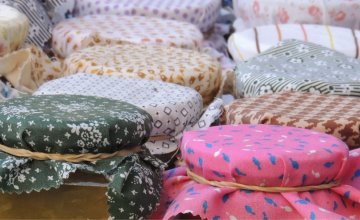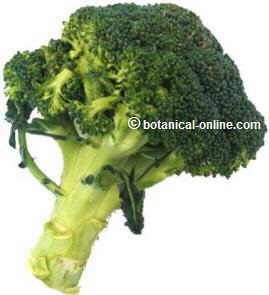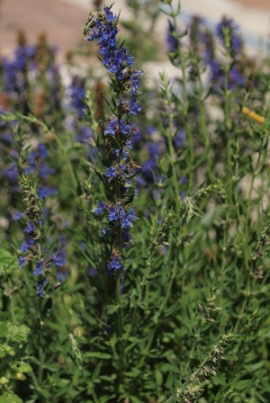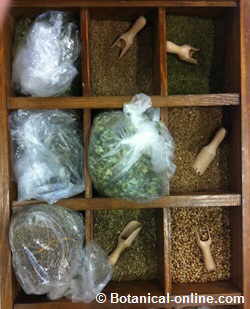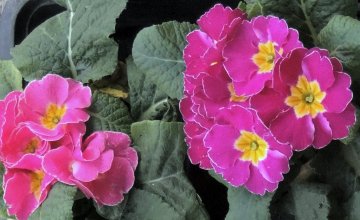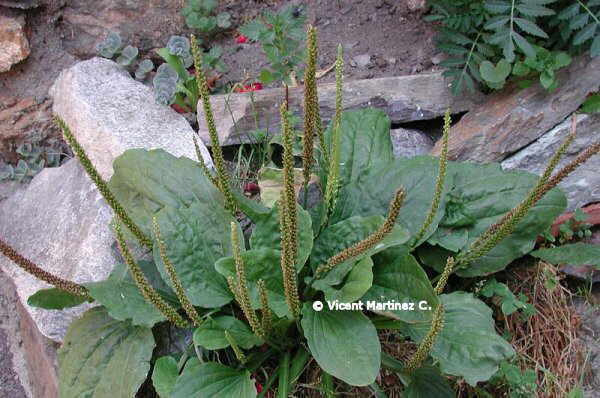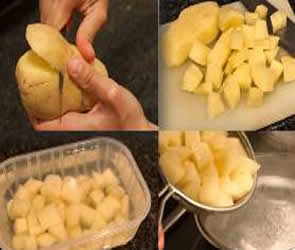Contents
Home plant remedies for embolism
PHYTOTHERAPY FOR EMBOLISM
Herbal remedies for embolism
Important Note: The use of these remedies along with other anticoagulant drugs may have side effects or incompatibilities. Consult your doctor before taking these remedies if you are taking these medications. Before starting any treatment, consult your doctor.
Which medicinal plants can be used to treat embolism?
Phytotherapy in the treatment of embolism focuses on the use of plants for the following purposes:
- Circulatory plants to improve blood circulation. With fluidizing components that reduce blood clotting ability.
- Diuretic plants. They can favor the expulsion of body fluids for a better elimination of toxins and therefore a purer and more fluid blood flow.
- Vasotonic plants to protect blood vessels and provide them greater flexibility
Herbal preparations for embolism
Among the main plants, we can point out the following:
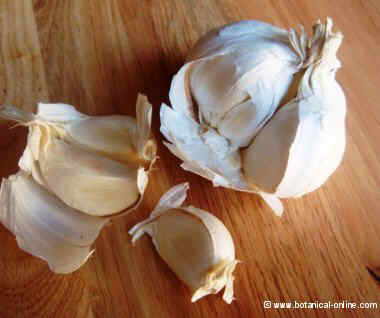 Garlic makes blood more fluid, being very suitable to prevent and treat embolism
Garlic makes blood more fluid, being very suitable to prevent and treat embolism
- Garlic (Allium sativum): Garlic is one of the best remedies to thin blood and improve circulation (Half a gram of dye per day) (Raw in salad) (Maceration of 100 grams of garlic 400 grams of alcohol in wine. Half a teaspoon before bedtime)
- Ginkgo (Ginkgo biloba) Ginkgo is one of the best remedies to improve blood circulation.(See details in the study of the plant)
- Ginger (Zingiber officinale) thins the blood, prevents emboli formation and lowers blood pressure (Eat ginger at meals) (Take 3 capsules of 250 mg per day, divided between meals)
- Cayenne pepper is also capable of decreasing the fibrin which is useful in the prevention and treatment of embolism. (Include cayenne pepper with meals)
- Cat’s claw (Uncaria tomentosa): It contains rhynchophylline, a blood thinner, that decreases the clotting ability of blood.
- Willow (Salix alba) Willow has anticoagulant properties which prevents the formation of emboli or clots within the arteries or veins and the accumulation of platelets. (Infusion of a teaspoon of bark per cup of water. Drink a glass every two days) (Contraindications in the general study of the plant)
- Blackcurrant (Ribes nigrum) Because of flavonoids, it is a good remedy for improving blood circulation and prevent strokes.
 Infusion of dandelion leaves can be used for embolism
Infusion of dandelion leaves can be used for embolism - Dandelion (Taraxacum officinale) It can increase urine output. improving blood circulation (infusion of dried leaves. Take 3 cups a day. The same infusion can also be done with the mixture of leaves with roots.)
- Horsetail (Equisetum arvense) Another very good diuretic. (Decoction for 30 minutes of 100 gr. Of the dried plant per liter of water. Take a couple of cups a day) (2 tablespoons fresh juice diluted in water per day) (3 gr. Of fluid extract daily. Sold in pharmacies and herbalists) (Contraindications in the general study of the plant)
Supplements: Vitamins and minerals for embolism
The use of vitamins, minerals and other supplements can help facilitate the dissolution of blood clots or prevent their formation. It is recommended using the following supplements:
- Vitamin B, especially Vitamin B3 (niacin) since it improves the blood vessels state.
- Vitamin C and Vitamin E: Their antioxidant properties can prevent blood vessels deterioration.
- Linseed oil: Because of its content in unsaturated fatty acids
- Soy lecithin: It lowers cholesterol and helps to destroy the plaques in the arteries.
![]() More information on the natural treatment of embolism.
More information on the natural treatment of embolism.

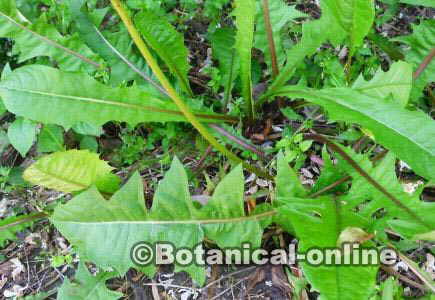 Infusion of dandelion leaves can be used for embolism
Infusion of dandelion leaves can be used for embolism